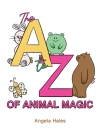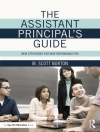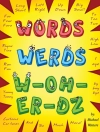‘I found several strategies mentioned to be helpful to my own practice and tried them right away with immediate success.’
—Deanna Brunlinger, National Board Certified Science Teacher, Elkhorn Area School District, WI
‘The research is strong and well presented. The book addresses all aspects of science education and focuses on developing scientific thinkers.’
—Loukea Kovanis-Wilson, Chemistry Instructor, Clarkston High School, MI
Supercharge your science lessons with proven strategies!
The experience and science expertise of these award-winning authors makes this easy-to-use guide a teacher′s treasure trove. This latest addition to the popular What Successful Teachers Do series describes 75 research-based strategies and outlines best practices for inquiry-oriented science. Each strategy includes a brief description of the supporting research, classroom applications, pitfalls to avoid, and references for additional learning. Teachers of students in Grades K–12 will find a host of novel ways to engage children′s natural curiosity, concern, and creativity in science learning. Highlights include how to:
- Promote collaborative learning
- Use formative assessment to engage students in content and instruction
- Develop culturally responsive practices that invite contributions from diverse students
- Build students′ scientific literacy and reasoning skills
- Incorporate students′ Internet skills into their studies
When it comes to teaching science, you don′t need to reinvent the wheel. Learn from the experts today and jump-start your science curriculum tomorrow!
Cuprins
Foreword by Page Keeley
Preface
Acknowledgments
About the Authors
Introduction
1. General Science Instruction
Encourage Students to Become More Involved and Interested in Science
Guide Students to Engage in Science-Appropriate Discourse
Utilize Graphic Organizers in Your Classroom
Increase Depth of Coverage to Improve Student Learning
Foster Self-Efficacy and Motivation in Your Students
Challenge Your Students With Different Levels of Questioning
Try Using the 5E Instructional Model
Support Your Students to Engage Effectively in Disciplinary Argumentation
Utilize Mind Mapping to Improve Student Achievement
Test Students′ Ideas to Facilitate Reasoning Skills
Create an Emotionally Positive Science Classroom Environment
Engage Students Who Have a History of Poor School Achievement
Include Students With Special Needs in Student-Centered Instruction
2. Scientific Inquiry and Laboratory Experience
Engage Your Students in Inquiry-Based Science
Teach Model-Based Inquiry Over the Scientific Method
Use Problem-Based Learning to Introduce Students to Inquiry-Based Science
Implement Inquiry-Based Instruction in Low-Track Classes
Attain Educational Goals Through Laboratory Experiences
Convert Traditional Labs to Inquiry-Based Activities
Align the Goals of Dissection to the Curriculum
3. Collaborative Teaching and Learning
Fine-Tune Collaborative Student Relationships With the Socratic Seminar
Teach Your Students Collaborative Strategies and Skills
Utilize Formal Cooperative Learning Methods in the Classroom
Introduce Students to Constructive, Cooperative, and Academic Controversy
Communicate Beyond the Classroom by Using Electronic Pen Pals
4. Utilizing Technology for the Classroom and Professional Development
Add Technological Tools to Your Students′ Learning
Put Your Students′ Internet Skills to Use in the Classroom
Use Technology to Accommodate Students′ Different Learning Styles
Give Students Opportunities to Use Media Production for Classwork
Incorporate Mobile Technology into Student Assignments
Model Inquiry With Students Using Limited Resources
Update Your Approach to Literacy-Related Content Activities
Foster Literacy Development Through Visual Texts and Media
Utilize Portable Media Players to Bring Exemplary Resources Into Teaching
Find Opportunities to Record Yourself Teaching to Share With Peers
5. Science Assessment
Look at Formative Assessment in a Coherent and Cohesive Way
Use Standards-Based Inquiry to Prepare Students for Standards-Based Tests
Align Instruction and Assessment Tools to State Curriculum Standards
Utilize Formative Assessment to Better Engage Students in Content and Instruction
Add a Classroom Response System for Instant Formative Assessment
Design Formative Assessment for Data to Inform Instruction
Encourage Assigned Textbook Reading by Giving Open-Book Tests
Focus on Students′ Writing Strengths
6. Culturally Responsive Teaching and Learning
Avoid Culturally Stereotyping Science Students
Make Academic Success Your First Priority for All Students
Reach Out to Students From Unfamiliar Cultural and Linguistic Backgrounds
Structure Homework for Success for Students From Nondominant Backgrounds
Develop Science Standards With a Multicultural Perspective
Broaden Discourse Opportunities to Invite a Diverse Range of Contributions
Provide Diverse Learning Opportunities for Student Discourse
Manage and Change Your Students′ Misconceptions
Guide Students to Choose Authentic Problems to Solve
Utilize Meaningful Cues With Your English Language Learners
Provide ELLs With Opportunities for Extended Interactions in Group Work
7. The Complex Nature of the Gender Gap in Science
Examine the Evolving Nature of Gender Issues in Science Classrooms
Change the Opportunities and Experiences of Girls in the Science Classroom
Represent Science in Ways That Encourage Girls to Stay Interested
Improve Attitudes Toward Science Through STS Approaches
8. Science and Literacy
Address the Three Key Elements of Reading Fluency in Science Instruction
Use Scaffolding to Improve Science Reading Comprehension
Consider Reading as Inquiry With Primary Literature
Focus on Developing Scientific Literacy and Student Reasoning
Use Paraphrasing to Promote Reading Comprehension in Science Textbooks
Utilize Think-Alouds to Reveal Students′ Thought Processes While Reading
Select Commercial Reading Programs That Can Improve Scientific Literacy
Use a Variety of Print Materials to Inspire Student Reading and Writing
Expand Vocabulary Instruction to Improve Comprehension and Motivation
Use Students′ Native Languages in Science Literacy Instruction
9. Families and Science Instruction
Avoid the ‘Blame Game’ Mindset
Involve Low-Income Parents in Their Children′s Academic Learning
Understand How Homework Can Present Problems for Students and Families
Change Parents′ Attitudes Toward Science to Change Students′ Attitudes
Involve Community Members in Learning to Explore Home-Based Discourse
Recognize the Diverse Needs of Language-Minority Students and Families
Consider Parental Responses to a Child′s Learning Disability
Index
Despre autor
Randy K. Yerrick is professor of science education and associate dean of educational technology at the State University of New York at Buffalo. He began his career as a chemistry, physics, and math teacher in Michigan schools before becoming a full-time researcher in science education. Yerrick′s research focuses on implementing contemporary visions of science inquiry in lower track classrooms where students share a strong history of failure and antisocial school behaviors. He has conducted ethnographies and critical autoethnographies in a variety of diverse teaching contexts as he continues to examine unresolved school issues of equity and diversity promoted by the continuous practice of tracking in science. He has also received recognition as an Apple Distinguished Educator. Examples of his work can be found at http://edcommunity.apple.com/.












